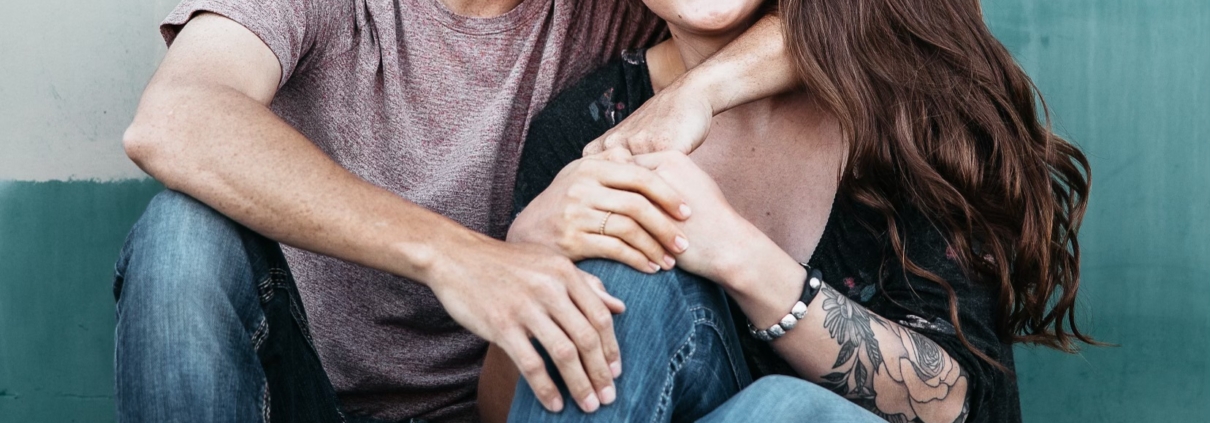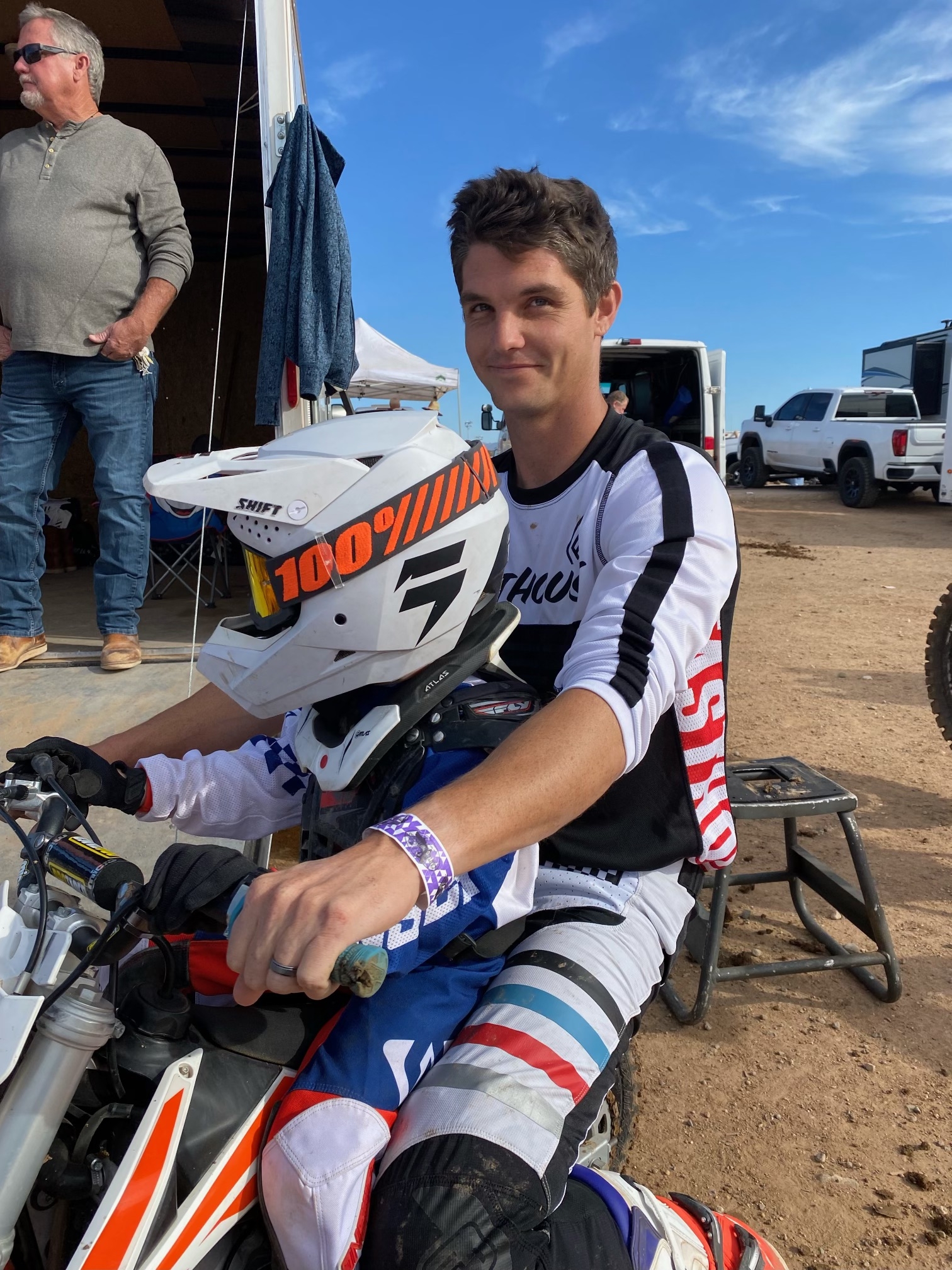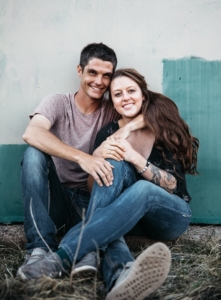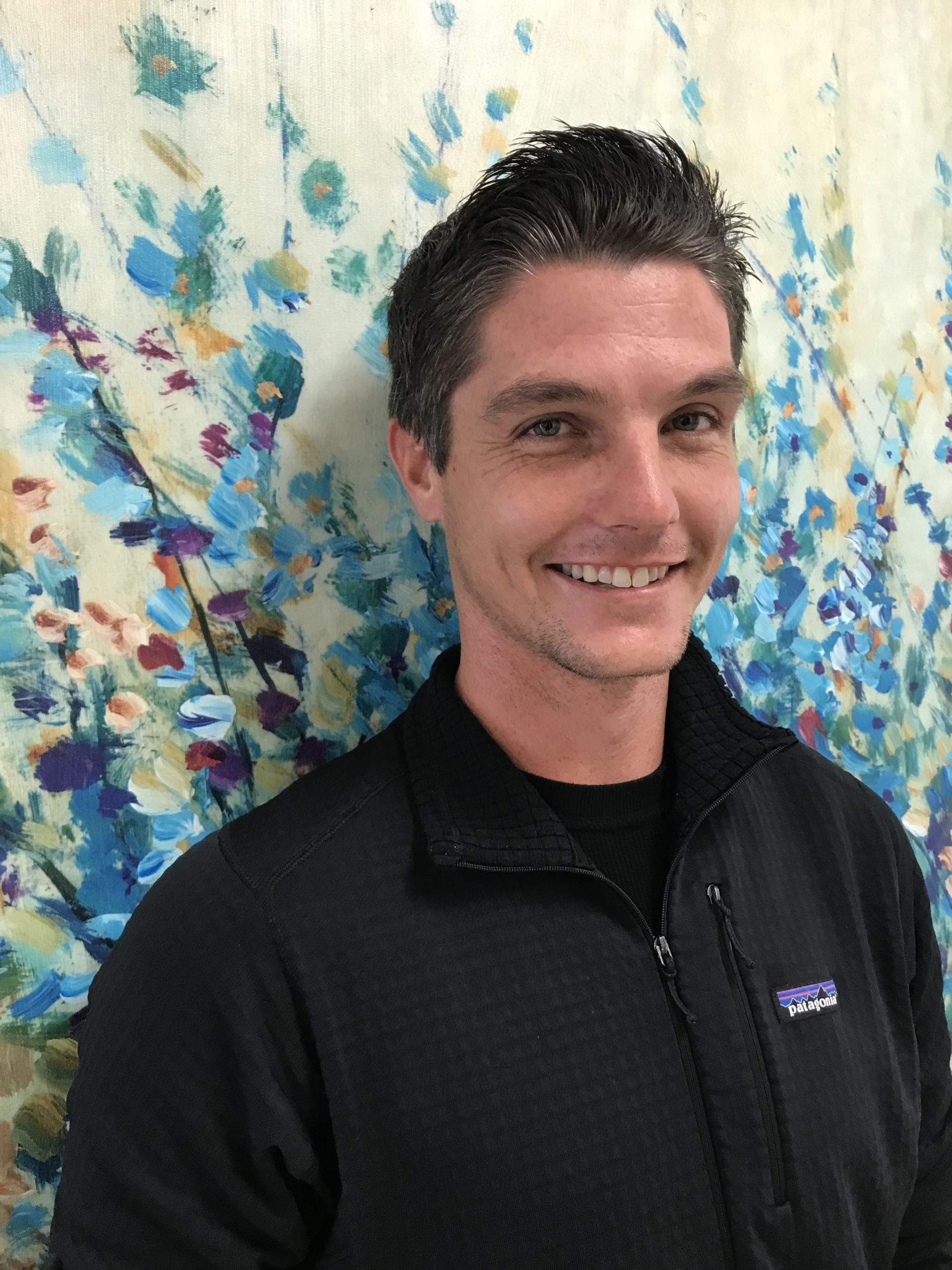Coley Todd
Coley Todd has always been physically active. He works as an excavator in construction and helps run the family construction business. Throughout his youth, Coley was involved in basketball and motocross. He had stepped away from racing dirt bikes but, in his 30s, picked the sport up again. He considered himself a “weekend warrior” and participated in the Phoenix Motor Cross Series racing dirt bikes. One of those weekend races changed his life.
Coley and his wife, Victoria, shared their recollection of that April day. “I don’t recall much from the accident,” Coley stated. “Or the days at the Phoenix hospital or the first week at Rehabilitation Hospital of Northern Arizona (RHNA). I slept a lot. My wife has had to fill in the missing pieces.”
Victoria, a physical therapist by trade, stated, “He wrecked on a wet track on a jump. I was there, and when I got to him, I saw that he had cracked his helmet. I had a gut feeling there was a head injury. There was an ambulance on the scene, but we had to wait for another ambulance to transport him to the hospital. He didn’t know who I was.”
The ambulance transported Coley to a hospital in Phoenix. There, he was diagnosed with a right scapula fracture, a back fracture, a right acromioclavicular joint (AC) separation of his shoulder, a right elbow fracture, and pulmonary contusions, in addition to brain injuries.
Coley’s brain injuries included a bifrontal parenchymal hemorrhage and left parietal hemorrhage, likely a diffuse axonal injury (DAI). Diffuse axonal injury is the shearing (tearing) of the brain’s long connecting nerve fibers (axons) that happens when the brain is injured as it shifts and rotates inside the bony skull. This type of injury is known in some cases as ‘Shaken Baby Syndrome.’
“The broken bones and other injuries were nothing compared to the brain injury and what I went through with that,” Coley stated. “I would take broken bones any day over a brain injury. It was probably around mid-morning of the third day that I knew who my wife was.”
When discussing their decision to come to RHNA, Victoria stated, “I knew that he needed rehab and in a timely manner. We live in Flagstaff, and I wanted him to go to rehab where we lived. I had to be persistent with the hospital in Phoenix that we wanted to return to Flagstaff for his rehab at RHNA. You guys (at RHNA) really worked with us to get him back home. You helped with arranging transport to get him back to Flagstaff, and it was so appreciated. There was something so comforting about looking out the window of our room and seeing Buffalo Park.”
Coley reflected on his experience, stating, “I had a lot of confusion and didn’t always know where I was, especially at night. During the day it was better, but at night it was really hard. I am so glad that you guys (RHNA) let my wife stay with me. It helped so much because she helped calm me in those moments.”
At RHNA, we allow what we call “family attendants” to stay with certain patients. The family attendant is a family member approved by the leadership team to stay with the patient in their room overnight. These individuals provide a source of comfort and help redirect the patient in instances of confusion. They also receive family training on the patient’s needs due to their condition, so they can better care for them in the home environment.
As Coley reflected on the influences that helped the most in his recovery, he wholeheartedly stated his wife and family. With a little laugh, Coley nudged Victoria and said, “My wife is the ‘bulldog’ in the relationship. This is a good thing. She really gets things done and advocated for me every step of the way. When the Phoenix hospital was trying to influence us to stay in Phoenix, it was her persistence that got me back home to Flagstaff to go to rehab. She was always by my side. Our family, too. They were so supportive.”
“There was some staff at RHNA that really stood out to me. Kelsey (PT) was awesome and really got me. She was so good to us. She understood that I’m the type of person that really needs to be moving around and not just lying there. She made sure to include ways to keep me moving while I learned things to help my brain recovery. Sundays were the hardest because therapy was slower-paced that day, but everyone tried to help keep me busy. The whole staff was really amazing. At night, when I couldn’t sleep, they would let me take laps through the halls instead of making me stay in my room. Savannah, my speech therapist, pushed me to do what I needed to get better.”
“Robin, RN, was a great support to me personally,” Victoria added. “She allowed me to talk to her about what I was going through as the support person to someone healing from brain injury. I will be forever grateful. The whole staff at RHNA was really good. We don’t want to leave anyone out.”
As part of the brain injury program at RHNA, a family meeting is held within five days of admission. The multi-disciplinary team, who have earned advanced certifications to treat and manage brain injury, works with the patient and the family to create an individualized, progressive treatment plan to offer the patient the best success at recovery. “Dr. Balouch was so attentive,” Victoria stated. “The family being new to brain injury, we needed a lot of education on what to expect, tools on how to help recovery, and we were allowed to ask so many questions. We needed a lot of education, and Dr. Balouch and Colleen, the case manager, were so patient. The family conference helped us to understand the brain injury better so we could support Coley in his recovery.”
Coley remained motivated to recover from his brain injury. “I didn’t want Victoria to have to take care of me forever. I had to keep pushing myself.” As a result of his hard work, Coley has made a significant recovery from both his physical injuries and his brain injury. Sometimes, he feels he has lapses in memory, but overall, Coley feels he is mostly back to himself.
Six months after his injuries, Coley started playing basketball again. He has thought about one day getting back on his dirt bike, but for now, he will not take any chances. Coley and Victoria are expecting their first child in April. “I have a kid on the way, and I’m not going to take any chances. We are so grateful for this upcoming experience of having a child.”
When asked what advice he would give to others recovering from a brain injury, Coley stated, “Sometimes people don’t realize how bad an injury can be when there is not a visible injury (your brain). There can be sort of a ‘mind game’ that happens with brain injury. You ask yourself, ‘am I forgetting something because I’m just human like everyone else, or is it because of the brain injury?’ Be kind to yourself. Remember to keep trying. There are days that you don’t want to, for sure, but keep trying. Don’t give up on yourself. Keep up that drive to get back to where you were, to get to your goals, and keep moving forward. Recovery of your brain injury doesn’t end once your leave RHNA.”
Coley is excited about the new adventure of becoming a dad. He and Victoria expressed that they didn’t know when or if it would be possible to have a family, and now here they are, expecting their first child about one year after his accident. Coley stated, “I believe that it was harder on my wife than it was on me having a brain injury because there were many times I could not remember. It was our journey, not just my journey in recovery from a brain injury, and I’m so grateful for her and our opportunity to grow our family.”






きもおじ家の新人さん?のご紹介です。ラブドール エロ正しい使用法などを写真付きでご紹介しております。どうぞよろしくお願いいたします。
Your comment is awaiting moderation.